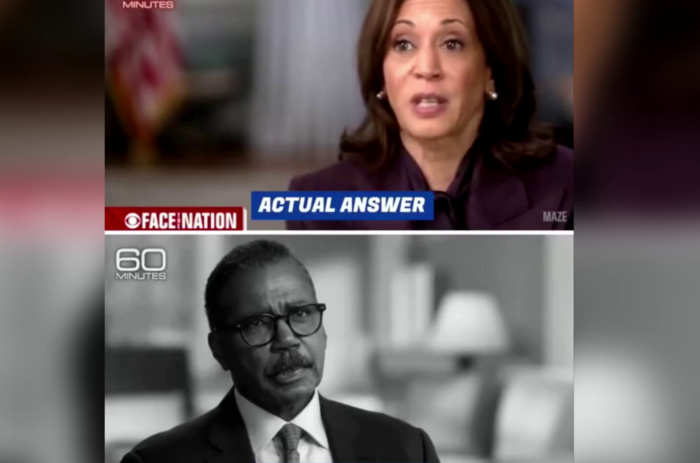redo Jump to...
print Print...
Directions
-Read the excerpt below from Julia A. Seymour and Sarah Knoploh's report posted at BusinessandMedia.org.
-Read "Types of Media Bias" in the right column. Then answer the questions.
President Barack Obama want[ed] a health care reform plan by August and the news media [did] their part to make it happen. ABC, CBS and NBC have boosted the administration’s case with sad stories about children without medical care and cancer patients whose insurance was cancelled. At the same time, those networks are nearly ignoring trillion-dollar cost estimates for a universal health care package, and have been virtually silent on the failures of Medicare, the government insurance program that “reform” would be modeled on.
Some network journalists, like ABC medical editor Dr. Tim Johnson, are openly embracing “ObamaCare.” A long-time supporter of government-run health care, this “objective” journalist calls the lack of “universal coverage” a “national shame.” ABC and the other networks are promoting Obama’s “historic” and “ambitious” health care agenda. Stories on ABC, CBS and NBC favored proponents to critics by a margin of more than 2-to-1 (243 to 104).
The Media Research Center’s Business & Media Institute examined 224 stories about health care on the three broadcast networks’ morning and evening shows that aired between Jan. 20, the date of Obama’s inauguration, and June 24, the night of ABC’s prime time town hall special on health care. Here are some additional findings:
- Networks Barely Discuss Cost Complaint: The No. 1 criticism of ObamaCare has been its price tag. The Congressional Budget Office estimates one proposed health care bill would cost $1.6 trillion (while still leaving roughly 36 million people uninsured according to the Washington Times). Yet, only 20 network stories (9 percent) referenced estimates even close to that number.
- Total Number of Uninsured Exaggerated: On April 29, Robin Roberts told “Good Morning America” viewers that “50 million Americans” were uninsured. Her claim was wrong by nearly 14 million people. Network mentions of the total number of uninsured were wrong by a margin of 4-to-1 (80 percent). Only NBC “Nightly News” and ABC “World News” never got it wrong – by not citing the number of uninsured at all.
- Networks Don’t Compare ‘Medicare-like’ Public Option to Medicare’s Track Record: Reporters admitted the public option insurance Obama wants would be “similar to Medicare” in just 11 of the stories (5 percent). But none of those stories pointed out that Medicare is heading toward an “explosive fiscal situation,” according to the CBO [Congressional Budget Office], or that the program is a big reason for rising health care costs.
- ABC the Worst: Universal-coverage proponent Dr. Tim Johnson and his blatant support for Obama’s health care plans made ABC’s coverage easily the worst of the three networks. Johnson, who had called the Clintons “almost heroes in my mind” after attempting to reform health care, is ABC’s “expert on health care reform” according to Diane Sawyer. Johnson even praised Obama as “right on target” for reaching out to doctors in Chicago June 15.
- NBC the Best: NBC did a better job than the other networks on a challenging topic. On June 24, Matt Lauer described health reform plans as “exorbitantly expensive” and asked how the president would handle the remaining “35 million” uninsured after promising “universal” coverage. NBC also did a slightly better job of including criticism of government health care than CBS did (25 percent for CBS to 29 percent for NBC) and made far fewer errors about the number of uninsured than CBS (CBS was wrong 8 times, NBC 2 times).
Network coverage of the health care reform plans needs to improve to ensure a fair debate. Here are some recommendations to accomplish that:
- Be Honest about the Cost: Any government plan is going to come at a huge cost to taxpayers. It is the responsibility of reporters to ask what those costs will be and who will be forced to pay them. Journalists should also be skeptical of cost estimates from the government since they have been unreliable in the past.
- Talk to Critics: In the case of health care, proponents of ObamaCare or other government-health care plans were included nearly three times as often as critics. In some cases, critics were given only a few-second sound bite while three or four sound bites from the president were used in the same story. The networks need to include more people skeptical of such plans and treat them equally.
- Expose the Shortcomings of Government Programs: Instead of advocating a new government solution, reporters should be examining problems with health care in Massachusetts and Hawaii, existing federal programs like Medicare and other countries.
- Find Alternatives: Conservative health policy experts advocated less regulation, tax code changes and more freedom of choice. Networks should include such experts and their proposals, not just the administration’s proposals.
Read the original report at businessandmedia.org.
To accurately identify different types of bias, you should be aware of the issues of the day, and the liberal and conservative perspectives on each issue.
Types of Media Bias:Questions
1. What types of bias does the media analysis highlight?
2. Re-read the list of recommendations for how the networks can be more even-handed in their reporting on the Health Care Reform plan. Do you think the suggestions are reasonable? Explain your answer.
Scroll down to the bottom of the page for the answers.
Answers
1. The analysis highlights bias by omission, spin and selection of sources.
2. Opinion question. Answers vary.



